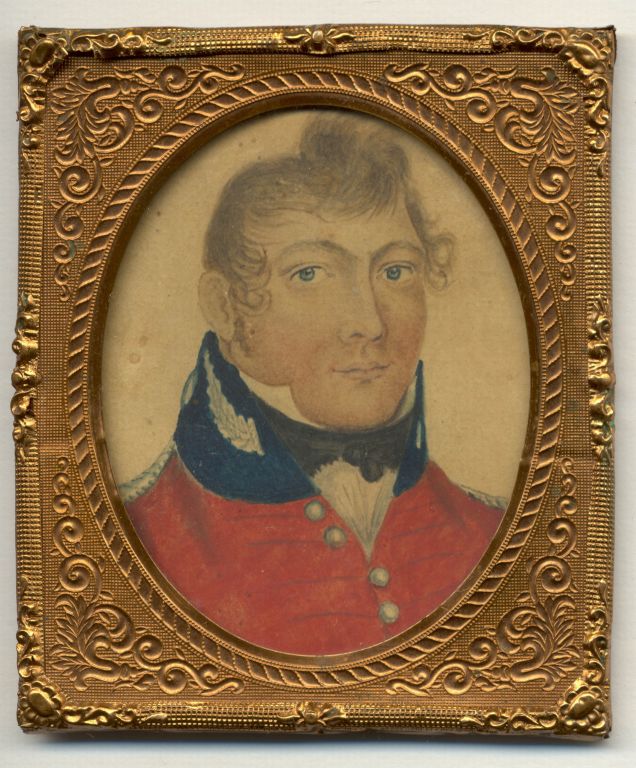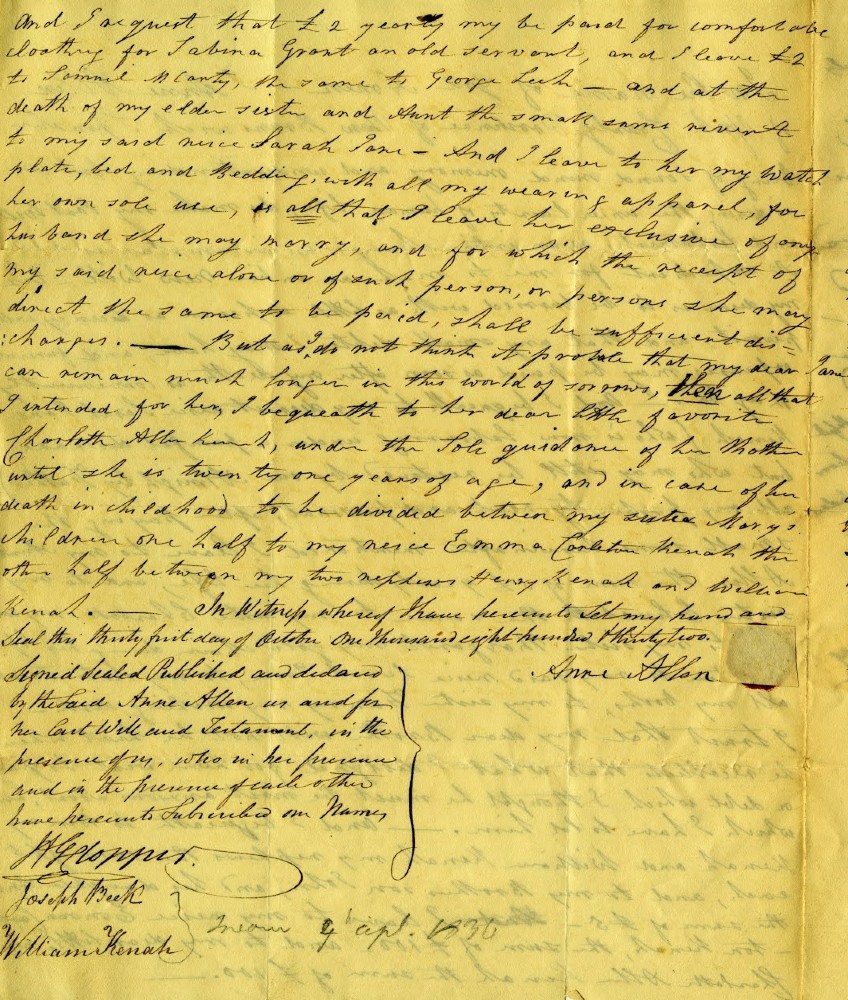A Catalyst for Freedom
“George Black, a free man, with his wife and two children
came with me to this place. He has long been free, and was
one of the brave fellows who served under the gallant Col Tye.
I think he deserves provision as well as other refugees…”
– Lt Col Isaac Allen, Springhill, 1783

“Lt-Col Isaac Allen (1741-1806)” by unknown artist. Watercolour over graphite on wove paper, mounted in pressed brass mat, 8 x 6.7 cm, c. 1800.
“I am a volunteer for the right of human nature” wrote Ward Chipman in December 1799, as he described the Jones vs Nancy case to a friend. At this point in time, there existed a growing tide against slavery in British North America, but in New Brunswick slavery was still common practice with Loyalist families who were accustomed to the traditions of the American colonies.
The aftermath of Nancy’s trial in 1800 was such that—although she did not obtain her freedom—her case served as a catalyst in the fight against slavery in this province. Nancy’s trial also led to the freedom of others, since one of the judges who ruled in Nancy’s favour was Lt Colonel Isaac Allen. Like Jones, Judge Allen also depended upon slaves to operate his 2,000-acre estate on the outskirts of Fredericton (in Springhill).


